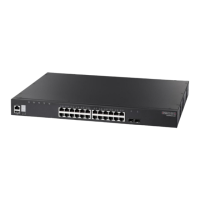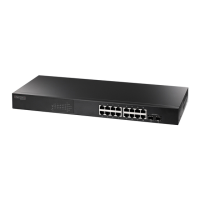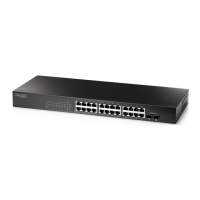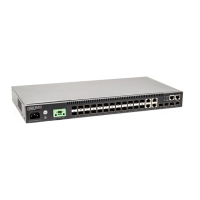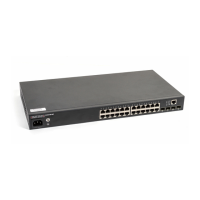Chapter 12
| Link Aggregation Commands
Manual Configuration Commands
– 444 –
Guidelines for Creating Trunks
General Guidelines –
◆ Finish configuring trunks before you connect the corresponding network
cables between switches to avoid creating a loop.
◆ A trunk can have up to 8 ports.
◆ The ports at both ends of a connection must be configured as trunk ports.
◆ All ports in a trunk must be configured in an identical manner, including
communication mode (i.e., speed and duplex mode), VLAN assignments, and
CoS settings.
◆ Any of the Gigabit ports on the front panel can be trunked together, including
ports of different media types.
◆ All the ports in a trunk have to be treated as a whole when moved from/to,
added or deleted from a VLAN via the specified port-channel.
◆ STP, VLAN, and IGMP settings can only be made for the entire trunk via the
specified port-channel.
Dynamically Creating a Port Channel –
Ports assigned to a common port channel must meet the following criteria:
◆ Ports must have the same LACP system priority.
◆ Ports must have the same port admin key (Ethernet Interface).
◆ If the port channel admin key (lacp admin key - Port Channel) is not set when a
channel group is formed (i.e., it has the null value of 0), this key is set to the
same value as the port admin key (lacp admin key - Ethernet Interface) used by
the interfaces that joined the group.
◆ However, if the port channel admin key is set, then the port admin key must be
set to the same value for a port to be allowed to join a channel group.
◆ If a link goes down, LACP port priority is used to select the backup link.
Manual Configuration Commands
port channel
load-balance
This command sets the load-distribution method among ports in aggregated links
(for both static and dynamic trunks). Use the no form to restore the default setting.
Syntax
port channel load-balance {dst-ip | dst-mac | src-dst-ip | src-dst-mac | src-ip
| src-mac}
no port channel load-balance
dst-ip - Load balancing based on destination IP address.
dst-mac - Load balancing based on destination MAC address.
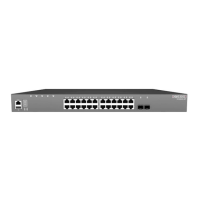
